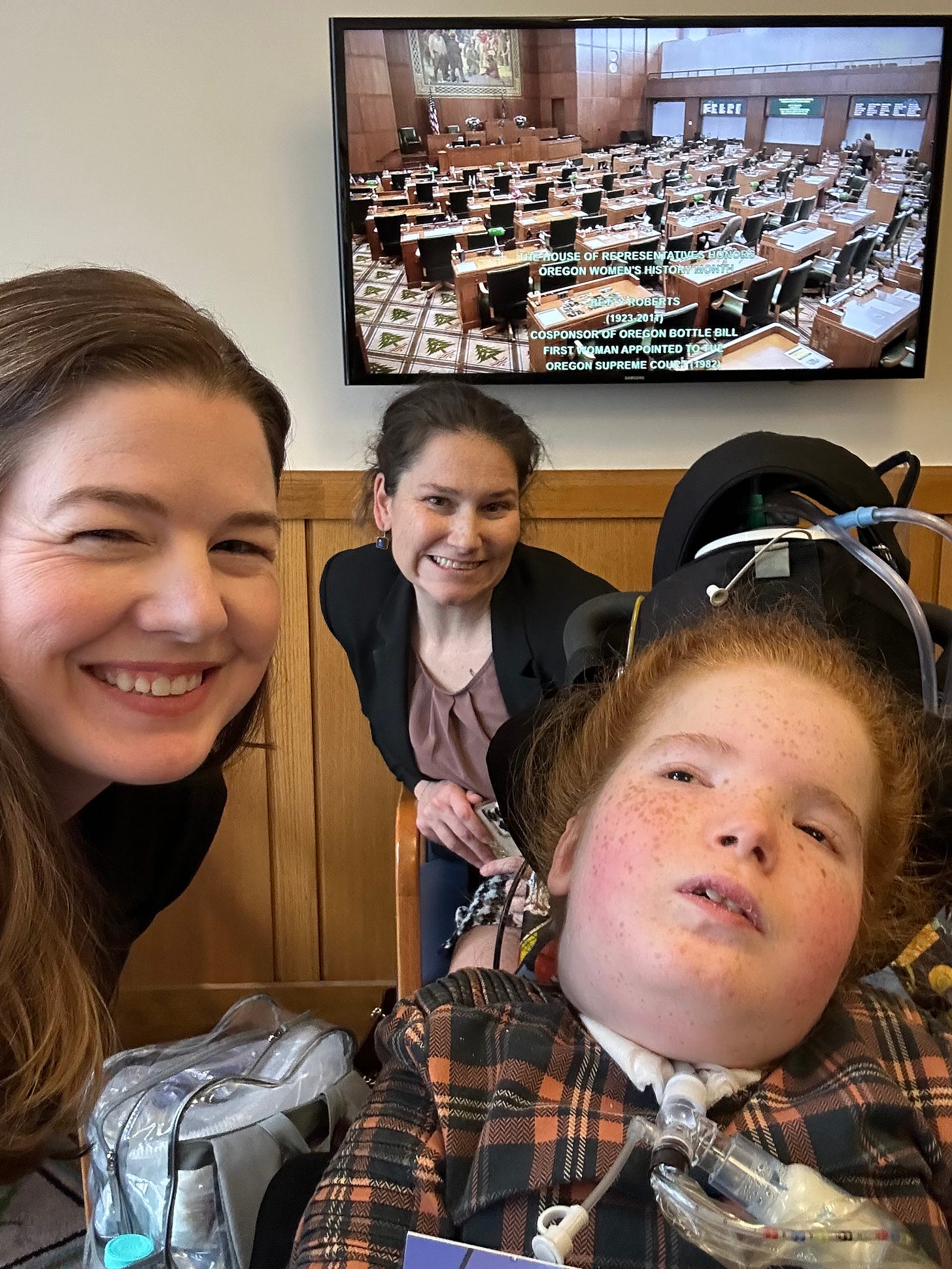Oregon paid parent caregiver bill advances to funding step
Plus: Washington Senate gives $2B boost to special education; and advocates worry cuts to the Department of Education will hamper civil rights cases
Our first story this week is about the Oregon pay family caregivers movement and quotes me and many of my friends in Advocates for Disability Supports. If you want to follow along as we fight for Tensy’s Law to be included in the state budget, follow us on Face…




